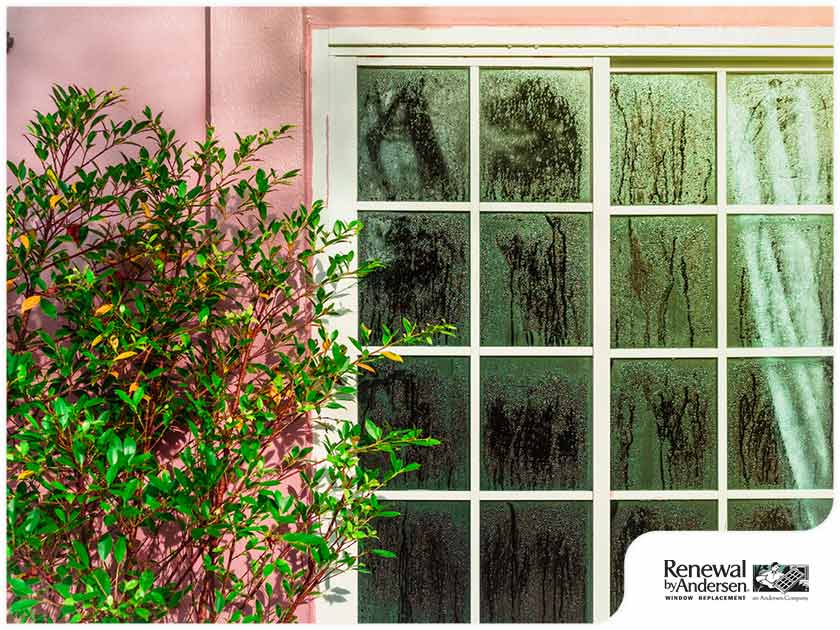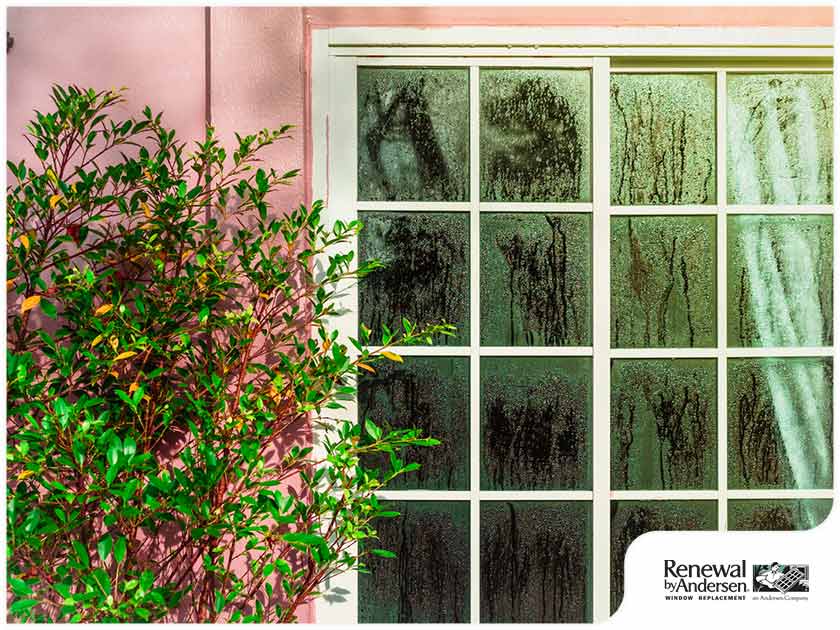MENU


Condensation on windows can be an alarming sight during seasonal extremes, but you should know that it’s not always a cause for alarm.

Condensation develops when moisture in the air meets a cold surface. A common example is the moisture that collects on the surface of a cold drinking glass. The moisture isn’t coming from the drink in the glass, but rather from the air around it. The concentration of moisture in the air is called humidity; the higher the humidity level in a room, the more condensation will form.
Seasonal extremes raise humidity levels, which results in condensation forming on surfaces, such as windows. Outdoor humidity levels tend to be higher during the summer season so condensation will form on a window with a cold surface as is often the case when the air conditioner is running. It’s important to note that heat tends to move to a cooler surface or area. Therefore, when windows are cool, it doesn’t mean cold air is “leaking”. Rather, it means heat is not infiltrating your home, and that you probably won’t need to call a home window replacement company any time soon.
Condensation may also form on windows during winter season, this time on the interior surface when outdoor air cools the windows. While this doesn’t indicate a problem with your windows, it indicates another problem: your home’s relative indoor humidity level is too high. Since the air is usually dry during the winter season, the problem is likely caused by sources of moisture inside your home. It could be caused by one or more of the following: incorrect humidifier settings, improperly sized heating systems or lack of exhaust fans in the bathroom and the kitchen. Addressing these causes can help prevent condensation on the windows during winter.
There is one form of window condensation that you should keep an eye out for in your home. Condensation that forms between glass panes on double- or triple-pane windows indicates an air leak. The space between glass panes are sealed to prevent conduction between air molecules. So, if the seal is broken, moisture in the air can penetrate it. The glass panes may also appear to shrink towards each other if the assembly was filled with insulating gas. If this happens, call your window contractor for repairs.
Renewal by Andersen®Midwest is your leading provider of replacement casement windows and other popular window styles. Give us a call at (866) 609-5033, or fill out our contact form to schedule an appointment.